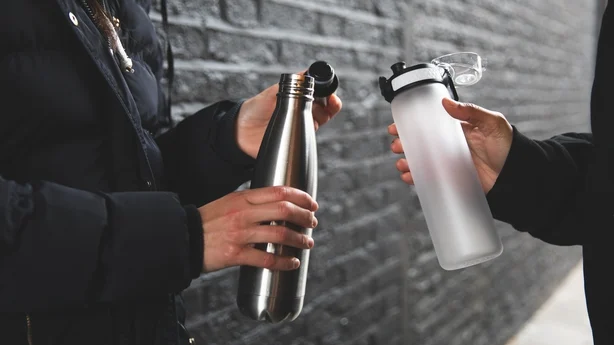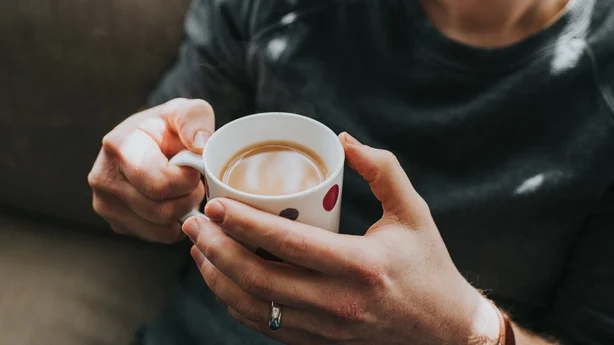With water bottles becoming almost as important an accessory as your favourite sunglasses or your phone case, staying hydrated has never seemed so important - or, ironically, as confusing.
With all the online discourse about how much water to drink, and what counts as hydrating, we can still find ourselves simply not drinking enough water during the day.
Orla's first tip is that we should "front load our water".

"The mistake some people make is they barely drink anything throughout the day and then they drink loads in the evening and then have to wake up two or three times in the night to pee", she explained, adding that we lose water in two ways: through insensible losses and sensible losses.
Insensible losses are ways that can't be easily measured, such as exhaling, talking and sweating, and we lose around 500ml of water like this overnight. "That's the water we need to replace first thing in the morning", she said.
She added that people shouldn't wait until we're already thirsty to rehydrate, because at that stage "it's already too late".
"We know that 1-2% dehydration will affect things like your cognitive function, your speed and accuracy of thought, as well as things like your heart rate", she said. If you exercise and you're a bit dehydrated, it will also feel more difficult for you.
Keeping on top of your body's cues is vital too, as Orla said: "We don't want our body to struggle."

"We know that hydrating well will actually help you live longer without disease. It's that important. We know that if you're chronically dehydrated, it will put you at risk of constipation, UTIs, kidney stones. There's a multitude of things.
"It can be fatal if you go far enough, which most people don't, it is rare enough. Ten percent dehydration, where you lose 10% of your body weight through dehydration, you damage organs and [at] 20% it's fatal."
Hydrating during exercise is especially important, as it not only helps with performance and perceived effort, Orla said, but also in cooling us down.
Water - and specifically the best temperature for drinking water at - has become a hot topic on social media, with some arguing that the body is better able to absorb room temperature water, but Orla said that there's nothing wrong with drinking ice cold water if that's what you prefer.
"It's really important to enjoy what you're drinking so that you drink more", she said.
Which brings us to a crucial question: does drinking tea and coffee count as drinking water? Irish people can rejoice in the knowledge that yes, it does!

"Don't get me wrong, caffeine can be a diuretic, so if you drank around 700mls of coffee maybe you might pee out an extra 100ml, but that's still 600ml that you're getting through your coffee consumption. And interestingly, [a study] showed that [for] people who drink coffee regularly, this might not happen at all. It might be the same as drinking water."
So how can we get more water into our diets? Varying our intake is one useful way, Orla said. "Generally we need somewhere between 1.7 to 2.7 litres a day, because we do get some through our food and some from our break down of food into energy."
She added that in Ireland women tend to drink too little water, by 700ml a day, while men under consume by 1.2 litres.
So take this as your reminder to fill up that pint glass!
To listen back to the full interview, click above.
Disclaimer: The copyright of this article belongs to the original author. Reposting this article is solely for the purpose of information dissemination and does not constitute any investment advice. If there is any infringement, please contact us immediately. We will make corrections or deletions as necessary. Thank you.






